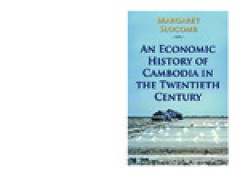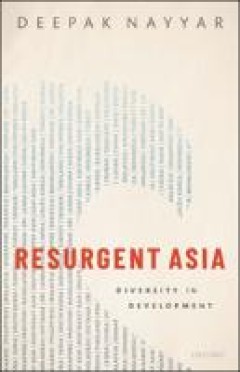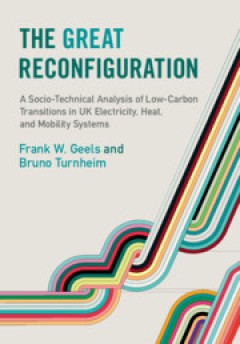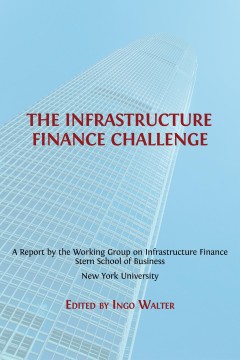Filter by

The Merger Mystery : Why Spend Ever More on Mergers When So Many Fail?
Statistical studies over the last forty-five years show that, although there are success stories, very many mergers and acquisitions do not result in the increased operating profits that economics textbooks would lead one to expect. As consultancy McKinsey have put it, ‘Anyone who has researched merger success rates knows that roughly 70% fail’. Yet—mysteriously—M&A activity has boomed …
- Edition
- -
- ISBN/ISSN
- 9781800647817
- Collation
- xviii, 180
- Series Title
- -
- Call Number
- HG4028.M4 MER G

An Economic History Of Cambodia In The Twentieth Century
While colonization, protracted war and violent revolution are commonly blamed for Cambodia's failure to modernize its economy in the twentieth century, Margaret Slocomb's Economic History of Cambodia in the Twentieth Century questions whether these circumstances changed the underlying structures and relations of production. She also asks whether economic factors in some way instigated war and r…
- Edition
- -
- ISBN/ISSN
- 9789971697198
- Collation
- -
- Series Title
- -
- Call Number
- -

Social enterprise in Central and Eastern Europe : theory, models and practice
In the last two decades, the quest for a widely accepted definition of social enterprise has been a central issue in a great number of publications. The main objective of the ICSEM Project (on which this book is based) was to show that the social enterprise field would benefit much more from linking conceptualisation efforts to the huge diversity of social enterprises than from an additional an…
- Edition
- 10
- ISBN/ISSN
- 9780429324529
- Collation
- ix, 326p.
- Series Title
- -
- Call Number
- 338 SOC n

Resurgent Asia : diversity in development
Resurgent Asia analyses the phenomenal transformation of Asia, which would have been difficult to imagine, let alone predict, fifty years ago, when Gunnar Myrdal published Asian Drama. In doing so, it provides an analytical narrative of this remarkable story of economic development, situated in its wider context of historical, political, and social factors, and an economic analysis of the under…
- Edition
- 9
- ISBN/ISSN
- 9780198849513
- Collation
- xix, 320p.; ill.
- Series Title
- -
- Call Number
- 338.95 RES n

Models in microeconomic theory
Models in Microeconomic Theory covers basic models in current microeconomic theory. Part I (Chapters 1-7) presents models of an economic agent, discussing abstract models of preferences, choice, and decision making under uncertainty, before turning to models of the consumer, the producer, and monopoly. Part II (Chapters 8-14) introduces the concept of equilibrium, beginning, unconventionally, w…
- Edition
- -
- ISBN/ISSN
- 9781783749225
- Collation
- xv, 341p. : ill.
- Series Title
- -
- Call Number
- 338.5 OSB m

The great reconfiguration : a socio-technical analysis of low-carbon transiti…
This book is intended for researchers, policymakers, and practitioners interested in the dynamics and governance of low-carbon transitions. Drawing on the Multi-Level Perspective, it develops a whole system reconfiguration approach that explains how the incorporation of multiple innovations can cumulatively reconfigure existing systems. The book focuses on UK electricity, heat, and mobility sys…
- Edition
- -
- ISBN/ISSN
- 9781009198233
- Collation
- xiii, 399p.; ill.
- Series Title
- -
- Call Number
- 333.70941 GEE t

The infrastructure finance challenge : a report by the Working Group on Infra…
Infrastructure and its effects on economic growth, social welfare, and sustainability receive a great deal of attention today. There is widespread agreement that infrastructure is a key dimension of global development and that its impact reaches deep into the broader economy with important and complex implications for social progress. At the same time, infrastructure finance is among the most c…
- Edition
- -
- ISBN/ISSN
- 9781783742950
- Collation
- 126p. : ill.
- Series Title
- -
- Call Number
- 363 WAL t

A short history of transport in Japan from ancient times to the present
A Short History of Transport in Japan from Ancient Times to the Present is a unique study: the first by a Western scholar to place the long-term development of Japanese infrastructure alongside an analysis of its evolving political economy. Drawing from New Institutional Economics, Black offers an historically informed critique of contemporary planning using the example of Japan’s historical …
- Edition
- -
- ISBN/ISSN
- 9781800643581
- Collation
- xv, 299p. ; ill.
- Series Title
- -
- Call Number
- 388.0952 BLA a

Transforming Biodiversity Governance
Over fifty years of global conservation has failed to bend the curve of biodiversity loss, so we need to transform the ways we govern biodiversity. The UN Convention on Biological Diversity aims to develop and implement a transformative framework for the coming decades. However, the question of what transformative biodiversity governance entails and how it can be implemented is complex. This bo…
- Edition
- -
- ISBN/ISSN
- 9781108856348
- Collation
- xviii, 390p,: ill
- Series Title
- -
- Call Number
- 346.04695 ING

Beyond the limits to growth: new ideas for sustainability from japan
Sustainable Development; Energy Policy, Economics and Management; Energy Efficiency (incl. Buildings); Climate Change Management and Policy; Renewable and Green Energy; Environmental Engineering/Biotechnology
- Edition
- -
- ISBN/ISSN
- 9783662549971
- Collation
- iv, 131 p. : ill.
- Series Title
- Science for Sustainable Societies
- Call Number
- -
 Computer Science, Information & General Works
Computer Science, Information & General Works  Philosophy & Psychology
Philosophy & Psychology  Religion
Religion  Social Sciences
Social Sciences  Language
Language  Pure Science
Pure Science  Applied Sciences
Applied Sciences  Art & Recreation
Art & Recreation  Literature
Literature  History & Geography
History & Geography